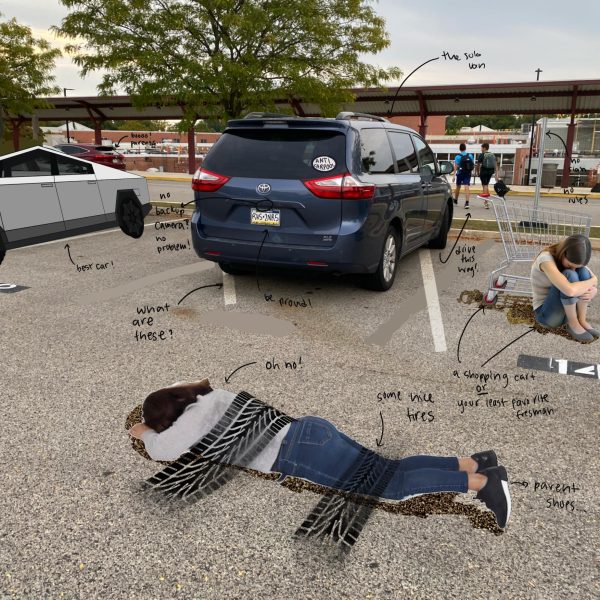Strike for Snow Days
This is satire.

January 20, 2021
Forget starving polar bears, melting ice caps, and rising sea levels. The youth climate strike movement has evolved to protect what is truly important: our snow days. Last year, we received zero snow days. Though we can rejoice today on this peaceful, schoolless morning, know that with warming temperatures this may be the last time any high schoolers in Pennsylvania experience the bliss of snow days. The problem extends beyond Radnor, as the climate crisis continues to threaten the snowdays of high schoolers today across the Northeast.
To maximize the potential for missing school, we need the greatest combination of snow and ice to make the roads as dangerous as possible ﹘ leaving administrators with no other choice but to cancel school. If temperatures continue to rise in America’s Northeast, we can kiss goodbye any hope of future snow days. In Pennsylvania, the number of days cold enough for snowfall has decreased from 120 to 89 ﹘ 31 valuable days when the opportunity for missing school was lost.
Even slightly warmer temperatures inhibit snow from sticking to the ground, stopping the formation of black ice, an essential component for dangerous driving conditions. If the trend of increasing temperatures continues, more and more of our beloved snow days will turn into mere gloomy rainy days. As it stands, we must stop the progression of warming temperatures to maintain the increase in snow, and improve the effectiveness of snowstorms in creating the most dangerous conditions possible.
In this time of crisis, the young people who are threatened with losing so much are stepping up in an attempt to prevent future loss of snow days. In the words of the great, almighty, and wise Greta Thunberg, 16-year-old climate activist, “We cannot solve a crisis without treating
it as a crisis. Our snow days must survive.” Thunberg and other student activists have formed organizations addressing the problem of climate change so that we might be able to keep what little snow days we have left. Slogans such as “join us in fighting for our future” from the Global Climate Strike and “our survival can’t wait” from The Sunrise Movement show that the youth across America understand the importance of our snow days.
We are already beginning to see the dire psychological effects of these lost snow days: loss of productivity, creativity, and ultimately happiness. No joy rivals that of an elementary schooler who wakes up to learn that instead of spending their day trapped in school learning, they get to spend it outside playing in the snow. Teachers too benefit from a break. Philadelphia teacher, Mr. Hateslil Bratts, shared in an interview, “Nothing is better than getting a break from spending six hours a day in a room full of little shi… I mean, nine-year-olds.”
During years with only a 20% decrease in snow days, middle school guidance counselors in Pennsylvania observed a two-fold increase in fights among their students. Child psychologist, Speshal Snoflaker, has studied the effects of decreasing snow days. In an interview, she recounted how “I’ve seen children in school after they expected to have a snow day. The looks on their faces tell me everything. It’s heartbreaking.” In her most recent child case study, she shared how a young girl, longing for a snow day, wrote only one thing on her Christmas list: snow. While telling this story, Professor Snoflaker was visibly upset, knowing that granting this child’s wish was out of her hands.
Standing up for children’s snow days everywhere, student leaders of the climate strike movement have successfully led mass protests. Last year, four million students and workers left their schools and jobs to protest climate change and the corresponding loss of snow days. Students in New York City were even granted excused absences from school. These protests served a dual purpose: encouraging lawmakers to take steps to limit global warming, and, more importantly, to missing school. These climate strikers have wisely thought ahead so that, even if they fail to stop global warming and snow days become a thing of the past, monthly or even weekly climate strikes in the winter months can replace snow days! As goes the phrase dawning many poster signs at the strike, “if the climate was cool, we could be off from school.”
As Greta Thunberg said in her address to the UN, by failing to protect our snow days, policymakers have “stolen our childhood.” Now is the time to take action, and join the millions of students united globally under the common interest of protecting our snow days, so that our future generations will get to experience the joy of the blissful, schoolless, winter wonderland.






